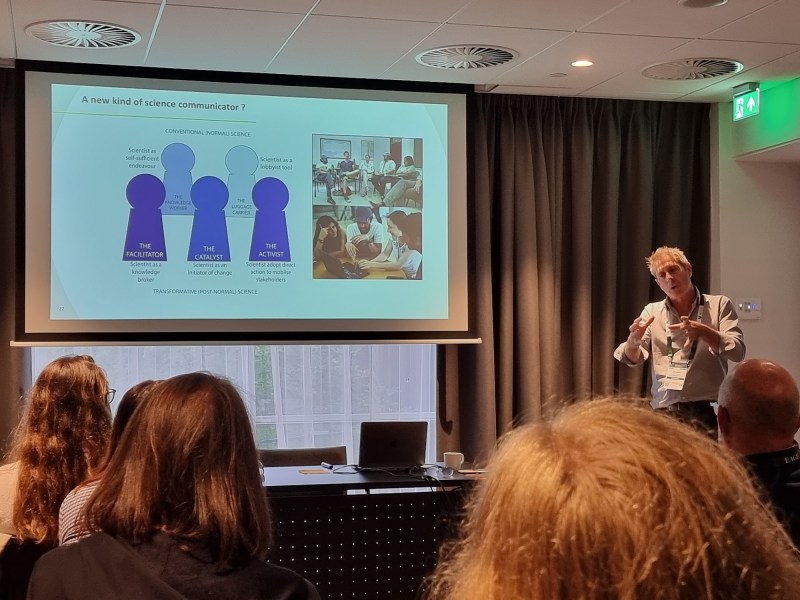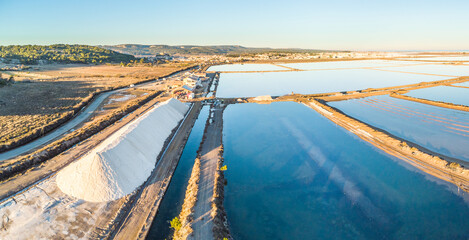Every year during our Annual conference, EAGE offers fantastic short courses by carefully selected renowned instructors, aimed at providing professionals and academics with key knowledge relevant to current developments in the field.
Keep an eye on this page for more details!
Short Courses
The EAGE Annual offers one-day short courses by carefully selected renowned instructors, aimed at providing professionals and academics with key knowledge relevant to current developments in the field.






Room 5
This course will, after all the euphoria about Compressive Sensing (CS), serve to get our feet back on the ground by taking a fresh and objective view. What works and what doesn’t? Which promises are realistic and which are less so? To decide whether or not to use CS we should not mainly, or solely, rely on mathematicians telling us that it works, with no recourse to any challenge of that viewpoint. This course provides that understanding.
Credentials: 5 CPD Points
Instructor:
- Jan de Bruin (JdB VitalSeis)

Room 4
The central objective of this course is to provide participants with a clear understanding of the key challenges and opportunities related to large-scale hydrogen adoption, with a particular focus on hydrogen storage in subsurface porous media. This one-day course presents an overview of the hydrogen value chain, covering production, transportation, and storage, while also addressing the policy and economic factors shaping the hydrogen economy.
Credentials: 5 CPD points
Instructor:
- Dr. Gang Wang (Heriot-Watt University)

Room 2
This course provides a broad overview of aspects of seismic data processing related to multiples in the seismic data. The course is structured in ten sections; we’ll start with definitions and examples of multiples, then discuss the roles of multiples in velocity model building and imaging workflows, then dive deep into prediction and adaptive subtraction methods for free-surface and internal multiples. In the final sections we’ll discuss published case studies (land and marine surveys from different geological environments), historical developments, emerging technology trends.
Credentials: 5 CPD points
Instructor:
- Dr. Clément Kostov (Independent Consultant)

Room 4
Geological issues are increasingly intruding on the everyday lives of ordinary people. Whether it is the onshore extraction of oil and gas, the subsurface injection of waters for geothermal power or the deep storage of waste products, communities across the world are being confronted with controversial geological interventions beneath their backyards.
With that in mind, the course will provide practical experience in creating more compelling, impactful messages and to get those messages out more effectively.
*EET courses are supported by the EAGE Education Fund. Members can register for special discounted fees.
Credentials: 5 CPD points
Instructor:
- Prof. Iain Stewart (University of Plymouth / Royal scientific society of Jordan)

Room 3
Over the past ten years, full waveform inversion (FWI) has emerged and developed to the point that is now the main technique of choice for detailed model building and reflectivity estimation for complex geological environments. In this review, the instructor will outline the underlying principles involved in FWI, detailing the use of RTM to estimate the location of subsurface parameter error, and introduce the many and varied ‘flavors’ of FWI, noting their limitations and benefits. Use of FWI for model estimation, reflectivity generation, and pre-sack attribute analysis (AVA) will be covered, and demonstrated with field data examples.
Credentials: 5 CPD points
Instructor:
- Ian F. Jones (Independent Consultant)

Room 4
This course is not included in the All Access Pass
Interest in carbon capture and storage (CCS) is growing rapidly as a crucial part of global efforts to reduce greenhouse gas emissions into the atmosphere. To support this growth in capture technology, we need an acceleration in new CO2 storage project developments. In this course, we review the science and technology underpinning CO2 storage in deep saline aquifer formations using insights from several industrial-scale projects.
Instructor:
- Prof. Philip Ringrose (NTNU)



